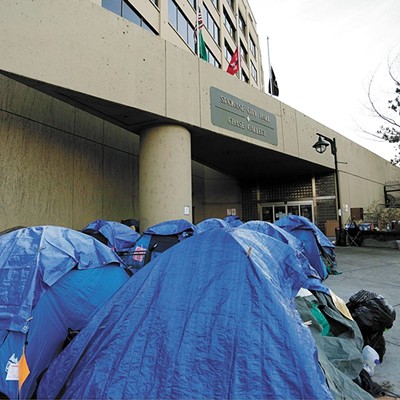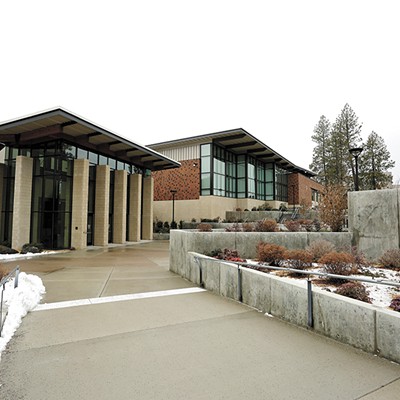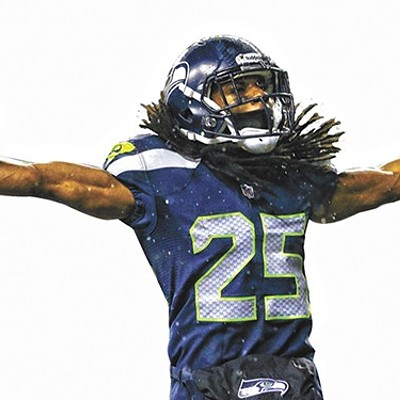Thirty years after it all began, Steve Raible remembers so many firsts in Seattle Seahawks history. Now the team's radio play-by-play broadcaster, Raible remembers playing for that first Seahawks team in 1976. He remembers Steve Largent's first day in training camp. He remembers the first draft, the first loss, the first win, the first sellout.
He remembers, quite frankly, wondering what kind of a mess he had gotten himself into.
"The first day I came out here," Raible recalls, "I got off the plane, and it was just raining and dreary and gray, and I'm thinking, 'Oh boy, this is going to be great.'"
Raible's initial pessimism soon gave way to guarded optimism when he found himself awash in the budding love affair that was developing between the Pacific Northwest and its new sports team.
Then came the first exhibition game — a meaningless, glorified scrimmage is all it was — and Raible realized that he was falling in love with the region and the fans who were falling in love with him and the Seahawks.
"The Kingdome was so loud, you could barely hear yourself think," Raible says. "I remember thinking, 'Holy smokes, what have we stumbled onto here?'
"It turned out to be a marriage made in heaven."
The Kingdome, sparkling new in 1976 — if a gray, concrete mushroom could ever be described as sparkling — is long gone.
The 1976 Seahawks represented the start of something special. Sunday in Detroit, for the first time in team history, that "something special" will include a Super Bowl appearance.
"I've been waiting 30 years for this to happen," says diehard Seahawks supporter Gary Rutt. "This is so exciting."
Oh, what an adventure it has been for longtime fans like Rutt. The Olympia auto mechanic is one of thousands who have purchased season tickets every year since 1976.
"Washington and the Seattle area was hungry for a team," Rutt says. "We had sellout after sellout after sellout."
The Seahawks did their part by playing an exciting, wide-open brand of football from the beginning. Rookie quarterback Jim Zorn, a strong-armed and strong-willed southpaw who could scramble like a burglar on a hot tin roof, made a name for himself by launching bombs to Steve Largent and Co.
"It was electric," says Zorn, now the Seahawks' quarterbacks coach. "That first year was unbelievable. Fans were so supportive. They filled that Kingdome every game. There was so much excitement. It was such a special time for this city. They waited a long time to get a NFL team."
Raible, a wide receiver for six NFL seasons (all with Seattle), actually started ahead of fellow rookie Largent in the 1976 season opener. For that matter, so did someone named Don Clune.
Yes, that Don Clune. The one who caught nine passes in his NFL career — a mere 810 fewer than Largent. Coach Jack Patera soon realized his error, and Largent launched his Hall of Fame career.
Raible loves to tell the story of the first time Largent showed up for training camp in Kirkland after being dumped by the Houston Oilers.
"He walks out there," Raible says, "and he saw a ball go right through a receiver's hands and hit him in the helmet. He said, 'Oh, I think I can play for this team.'"
The best part of that story, Raible says, is that he was the receiver.
Largent, of course, was supposed to be too small, too slow and too everything to make it in the NFL. However, Raible says Seahawks assistant coach Jerry Rhome was one person who expected big things out of Largent.
"Jerry Rhome had coached Steve at Tulsa, so he knew all about Largent," Raible explains. "He said, 'Guys, we've got a guy coming in who is really good. He's going to take somebody's job.'"
Like all expansion teams, that first Seahawks squad consisted of far more Don Clunes than Steve Largents. The Seahawks lost their first four exhibition games and finished the preseason 1-5, then lost their first five regular-season games en route to a 2-12 season.
"We went into every game thinking we were going to win," Zorn says. "Jerry Rhome built that into us. That was our mindset. We didn't think about losing."
"It was always exciting," Rutt insists. "They had trick plays. People knew we weren't going to the Super Bowl or even the playoffs, but we were just excited to go to the games."
Even in defeat, that first Seahawks team displayed a spirit and feistiness that caught the imagination of fans. The Seahawks lost their first exhibition game 27-20 to San Francisco when Zorn was tackled at the 2-yard line at the final horn. In their first official game, the Seahawks were edged 30-24 when the St. Louis Cardinals intercepted a pass in the end zone at the end of the game.
"There were some lean years with not many wins, but they were exciting," Rutt says. "We had a professional football team, and we had good rivalries with the Oakland Raiders, the Denver Broncos and the Kansas City Chiefs."
Seahawks executive Gary Wright, one of three employees who has been with the Seahawks from the very beginning (along with community outreach director Sandy Gregory and video director Thom Fernstad), says he was not surprised the Seahawks hit it off with fans right away.
"We had terrific local ownership, the pillars of the local community, and it was a football area," Wright says. "Plus, it's the NFL, and when you put an entertaining team with it, that really made it fun."
"Husky football was always a big deal," Raible adds, "and when Seattle finally got an NFL team, it gave [Puget Sound fans] one more football team to go nuts for."
Now, the Seahawks and thousands of devoted fans like Rutt are headed to Detroit for the Super Bowl. Tens of thousands of other Seahawk fans will be there in spirit, and hundreds of former Seahawk players can take pride in knowing they had a role in making Super Sunday come true.
"I came close to giving up my season tickets," Rutt says, "but I told myself, 'Hold on to them. Some day, they're going to go to the Super Bowl.'
"Guess what? That day is here."



















